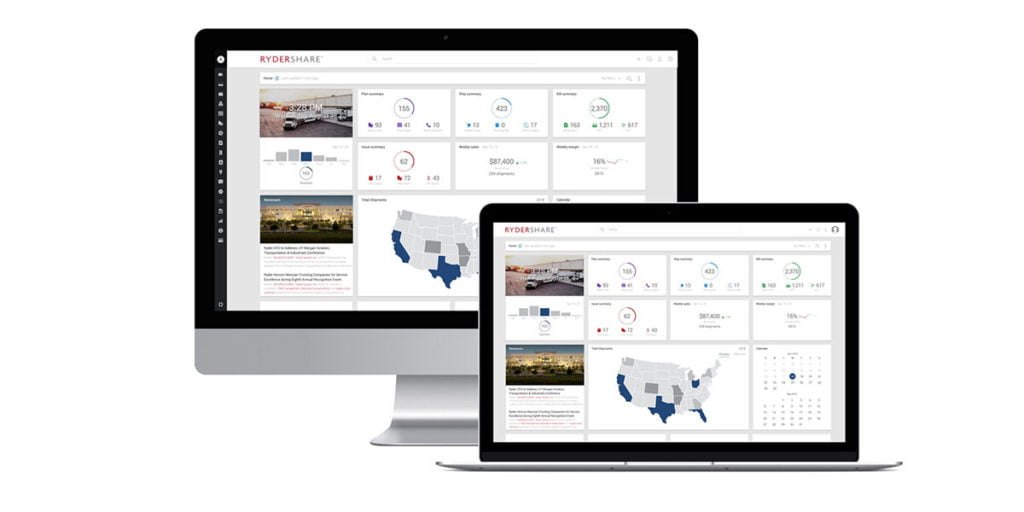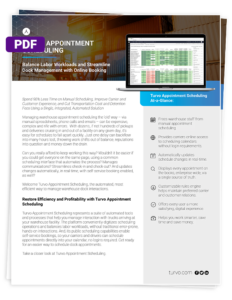In the world of logistics and supply chain management, the importance of appointment scheduling cannot be overstated. This seemingly simple process is the cornerstone of ensuring a smooth, efficient flow of goods, and it plays a crucial role in enhancing both visibility and customer experience. As businesses strive to keep up with the demands of an increasingly fast-paced market, the ability to effectively manage appointments for shipping, receiving, and service encounters has become more critical than ever.
The Essence of Appointment Scheduling
Appointment scheduling is the process of planning and organizing the times and dates at which specific actions related to the supply chain, such as deliveries and pickups, will take place. This system is essential for managing the flow of goods in and out of warehouses, distribution centers, and retail outlets, ensuring that resources are optimally utilized and that delays are minimized. The goal is to create a seamless link between suppliers, transportation, and customers, thereby increasing efficiency and reducing costs.
The Impact on Visibility
One of the most significant advantages of effective appointment scheduling is the increased visibility it offers across the supply chain. By knowing exactly when shipments are expected to arrive and depart, companies can better plan their operations, from inventory management to labor allocation. This visibility not only helps in optimizing internal processes but also in providing real-time updates to customers about the status of their orders. In today’s digital age, customers expect to be informed at every step of their order’s journey, and appointment scheduling plays a pivotal role in meeting these expectations.
Enhancing Customer Experience
The direct correlation between appointment scheduling and customer experience cannot be ignored. In a logistic context, customer satisfaction hinges on the timely and accurate delivery of goods. Effective scheduling ensures that time slots are allocated in a way that respects both the customer’s convenience and the logistic company’s operational capabilities. This balance is crucial for maintaining service quality and ensuring customer loyalty. Moreover, the ability to adapt to changes and reschedule appointments efficiently is a testament to a company’s commitment to customer service.
Technological Advances and Integration
The advent of advanced appointment scheduling software has revolutionized how companies manage their logistics operations. These tools offer features like automatic scheduling, real-time updates, and analytics, which provide insights into performance and help identify areas for improvement. Integration with other supply chain management systems, such as Transportation Management Systems (TMS) and Warehouse Management Systems (WMS), further enhances the efficiency and effectiveness of appointment scheduling. For instance, cloud-based platforms like Turvo offer integrated solutions that streamline these processes, contributing to a more resilient supply chain.
Best Practices for Appointment Scheduling
To fully leverage the benefits of appointment scheduling, several best practices should be followed:
– Leverage Technology: Utilize advanced scheduling software that can integrate with other supply chain systems to automate and optimize scheduling tasks.
– Prioritize Flexibility: Build flexibility into your scheduling process to accommodate unexpected changes or delays, reducing the impact on operations and customer satisfaction.
– Communicate Clearly: Maintain open lines of communication with all stakeholders, including suppliers, transportation providers, and customers, to ensure everyone is informed about schedules and any changes.
– Analyze and Adjust: Regularly review scheduling data and feedback to identify trends, bottlenecks, and opportunities for improvement.
The Future of Appointment Scheduling
As technology continues to evolve, the future of appointment scheduling looks promising, with trends pointing towards even greater automation, integration, and customer-centric features. Artificial intelligence (AI) and machine learning (ML) are set to play a larger role in predicting scheduling needs and optimizing appointments based on historical data and real-time conditions. Additionally, the rise of the Internet of Things (IoT) in logistics could further enhance the accuracy and efficiency of scheduling by providing more granular data on the location and status of goods.
Appointment scheduling is more than just a logistical necessity; it’s a strategic component that significantly impacts visibility, efficiency, and customer satisfaction in the supply chain. By embracing technology and adhering to best practices, companies can transform their appointment scheduling processes into a competitive advantage. As we move forward, the continued integration of advanced technologies will undoubtedly open new avenues for innovation in appointment scheduling, further enhancing the resilience and responsiveness of supply chains worldwide.










